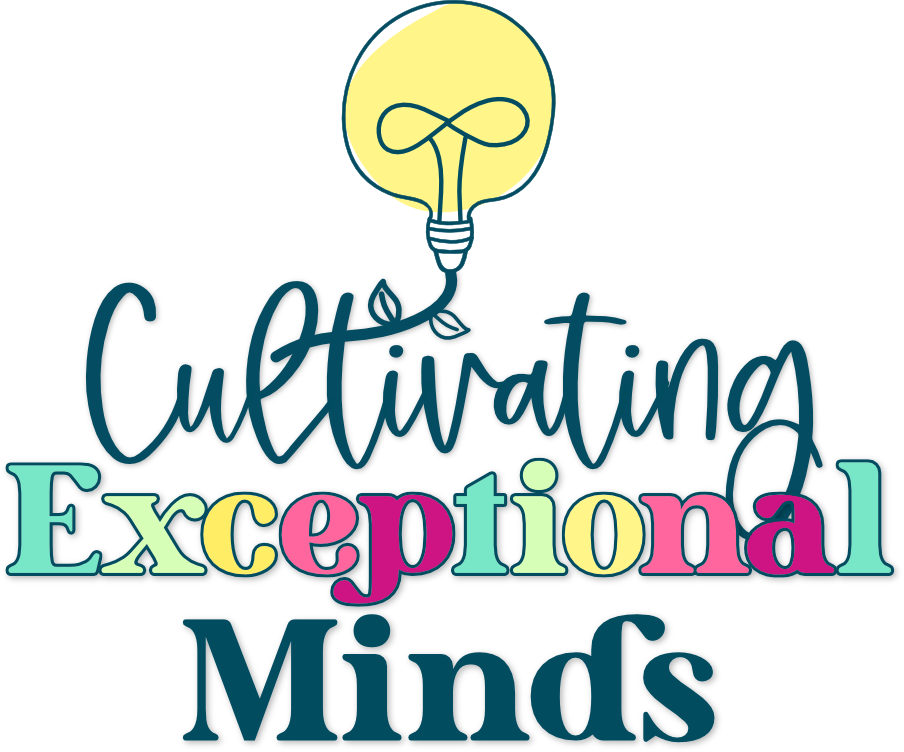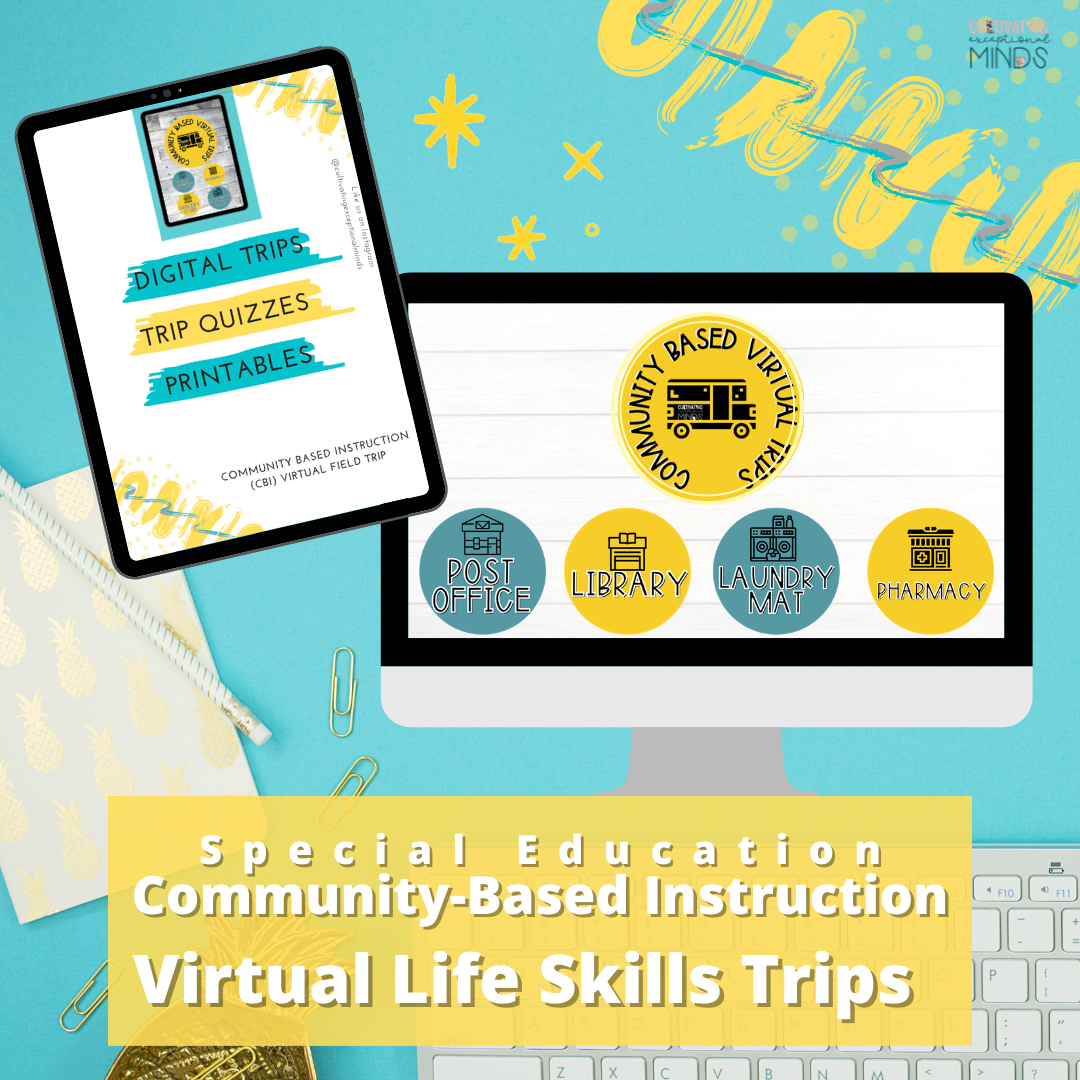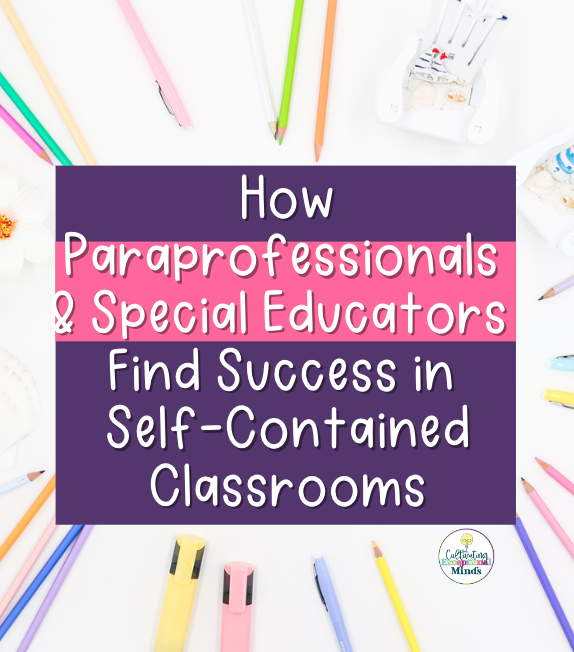As special education teachers we play a critical role in preparing our students for life after school. This can mean heading into a post-secondary education system, completing an internship or training program for a skill or going straight into the workforce. There are things that we should be doing, or teaching, our students right now to be ready for navigating transitions and higher education for students with diverse needs.
Understanding Transitions
Transitions are a critical part of life. They can be especially challenging for students with diverse needs. The transitions from school to post-secondary education or the workforce can be particularly daunting. It requires students to navigate new environments, expectations and social norms.

It is essential to understand the unique challenges our students may face during this transition. Some of which include communication and social skills deficits, executive functioning challenges, and difficulty with self-advocacy. By recognizing these challenges we can develop strategies to support our students effectively.
Individualized Transition Planning
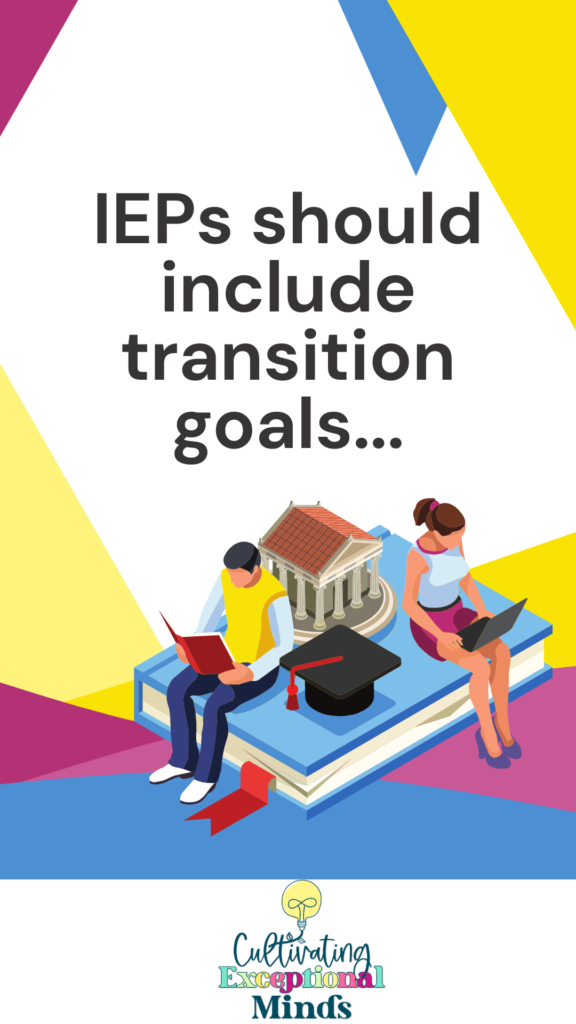
Individualized transition planning is critical to the support of students with diverse needs as they prepare for life after school. Transition planning should begin as early as possible, with an emphasis on identifying students’ strengths, interests and goals. It is also important to note the goals of the parents and to make sure that realistic ideas are kept in mind to best prepare the student.
IEPs should include transition goals and objectives once the student is a little older that align with their long-term aspirations. This may include identifying appropriate vocational training programs, college or university options or workforce opportunities.
Collaboration with Families and Community Partners
Collaboration with families and community partners is essential for successfully navigating transitions and higher education for students with diverse needs. Families play a role in supporting their child’s goals and aspirations, and they can provide valuable insights into the student’s strengths and challenges.
Community partners, such as vocational training programs, employers, and college representatives can provide valuable resources and support for students as they prepare for life after school.
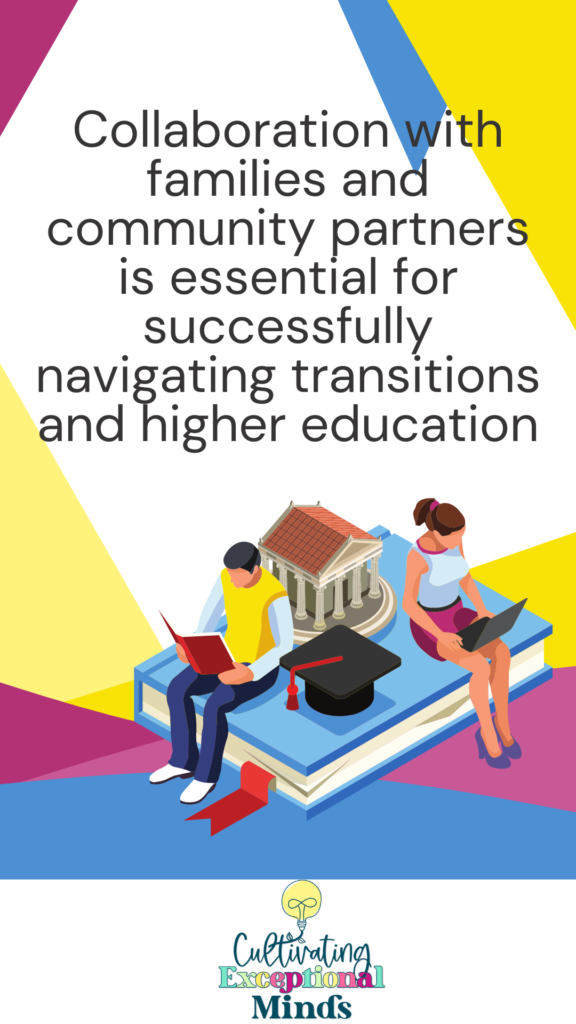
By collaborating with families and community partners, we can develop a comprehensive and effective transition plan that meets the student’s needs and goals.
Teaching Self-Advocacy and Executive Functioning Skills
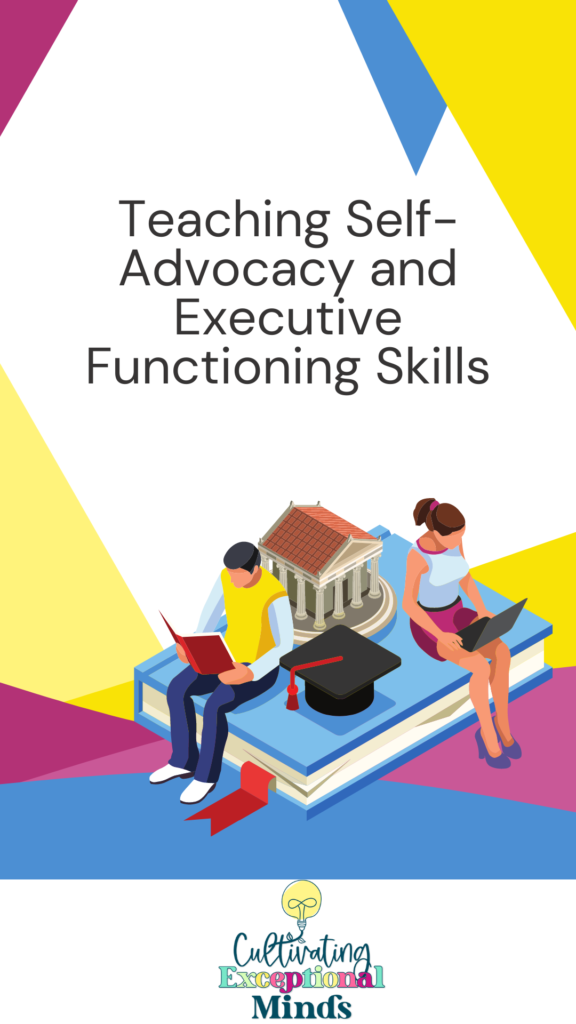
Self-advocacy and executive functioning skills are critical for success in post-secondary education and the workforce. Students with diverse needs may struggle with these skills, making it essential to provide explicit instruction and support.
Self-advocacy skills include the ability to communicate effectively, self-reflect and identify and articulate one’s needs and strengths. Executive functioning skills include time management, organization, planning and goal-setting.
By teaching self-advocacy and executive functioning skills, we can help our students develop the confidence and skills they need to succeed in vocational training, higher education and the workforce.
Preparing for Vocational Training or Higher Education
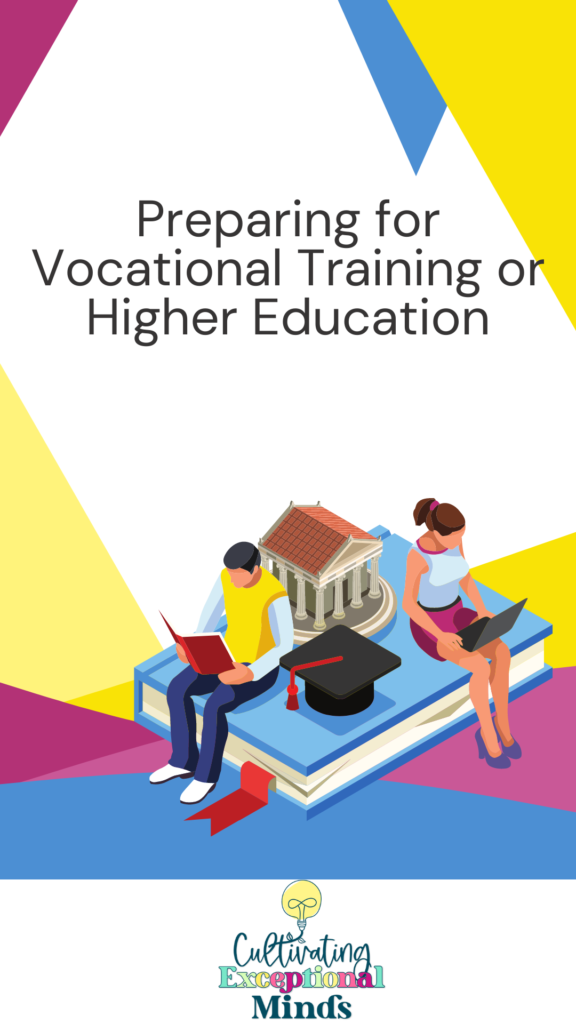
Vocational training programs can provide opportunities for students with diverse needs to develop job-specific skills and gain work experience. Special education teachers can support students in vocational training programs by providing individualized support and guidance.
This may include teaching job-specific skills, such as resume writing and interviewing and identifying appropriate vocational training programs that align with the students interests and goals.
Higher education can be an excellent option for students with diverse needs who are interested in pursuing post-secondary education. Special education teachers can support students in higher education by providing accommodations and modifications, such as note-taking support, extended time on exams and assistive technology.
It’s essential to identify appropriate higher education programs that will provide the necessary support to your students in order for them to be successful. The special education teacher can offer guidance in navigating this choice and asking the right questions to make sure that the student chooses wisely.
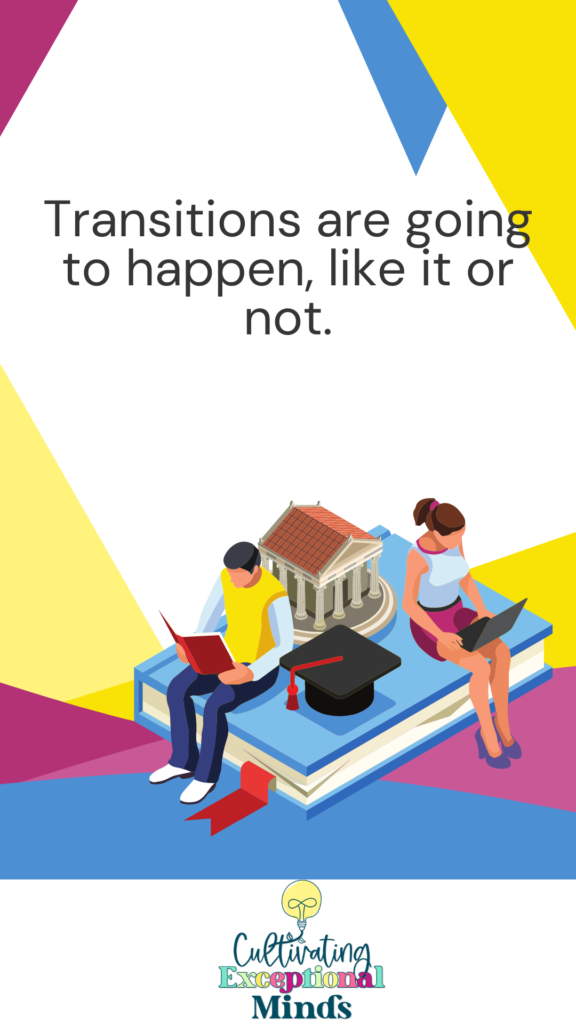
Transitions are going to happen, like it or not. As special education teachers, we can support our students by developing individualized transition plans, collaborating with families and community partners, teaching self-advocacy and executive functioning skills and providing support in vocational training and higher education.
By using these strategies and techniques, we can help with navigating transitions and higher education for students with diverse needs. It is essential to take a comprehensive and individualized approach to transition planning, considering each student’s strengths, challenges and goals.
If you want more information make sure you check out our latest podcast, Episode 158, for even more ideas.
